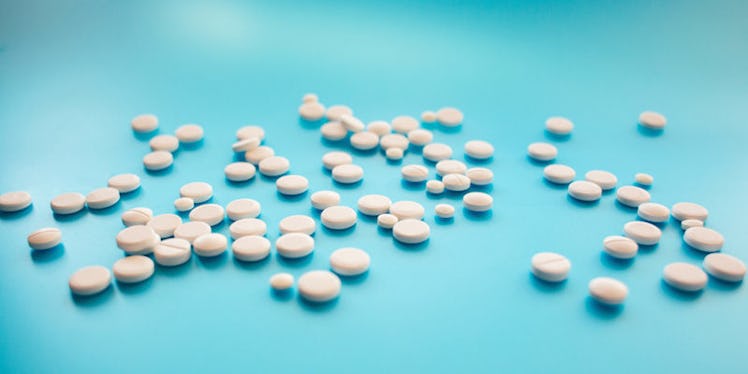
People Are Apparently Using This Anti-Diarrhea Drug To Get High
If you were ever a high school student, then you've probably experienced your fair share of vodka-soaked gummy bears and purple drank. But what's the latest trend in over-the-counter, DIY highs? Overdosing on anti-diarrhea pills, apparently.
Unfortunately, yes, this is a thing people are doing. The reason? In many of these pills, there are levels of loperamide, which according to chief medical officer and founder of Townsend Addiction Treatment Centers Dr. Howard Wetsman,
It's a weak opioid agonist that doesn't cross the blood-brain barrier very well. It's meant to treat diarrhea by stimulating the opioid receptors of the gut without affecting the opioid receptors in the brain.
You reportedly have to take 20 or 30 Imodium tablets to feel any kind of high, and if the sheer amount doesn't deter you, the addictive and cardiotoxic qualities of loperamide should.
For many, it isn't even about the high. According to Dr. Wetsman, people using anti-diarrhea medication are often "seeking to self-medicate opiate withdrawal. This is happening because there isn't enough treatment available to people." Sadly, the problem stems from escalating rates of opiate addiction in the US. Anti-diarrhea meds are a low-cost, legal and easy-to-find opiate alternative.
While these drugs aren't new, the abuse of them is and its roots are in the opioid epidemic that started roughly 30 years ago. Back then, the government along with non-government agencies like the Joint Commission on Accreditation of Healthcare Organizations were pressuring doctors to do more for patients with chronic pain. A few misinformed studies reported opiates as having a low addiction risk, and that's where our problem with over-prescribing begins. As Dr. Wetsman explains,
So there was widespread pressure on physicians to prescribe opioids for patient pain. Things got so bad that currently, there are physicians that feel like they could lose their jobs if they have poor patient satisfaction ratings, and patients with addiction threatening them with those ratings in order to get medication.
So what are we to do now that we're in the throws of a nationwide epidemic? Dr. Wetsman says,
What we've missed in each [epidemic], and still miss today, is that opioids aren't the problem. Addiction is. Until we address the brain illness, this pattern will continue.
Hopefully we can come up with a solution soon, because overdosing on anti-diarrhea pills should never be someone's last resort.
Citations: WHY ARE PEOPLE GETTING HIGH ON AN ANTI-DIARRHEA DRUG? (Thrillist)